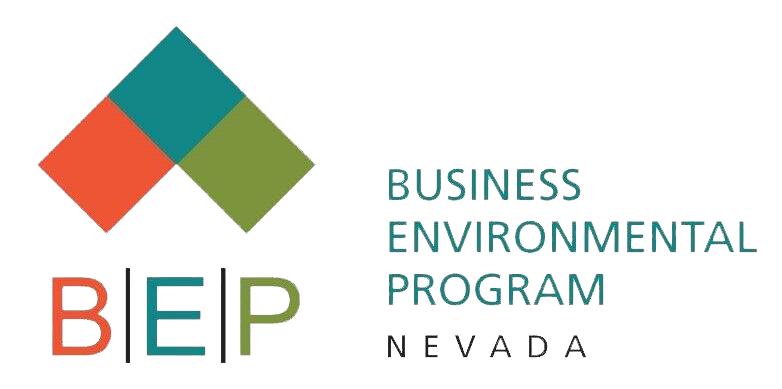There are many challenges to starting, restarting and managing your operation during good times, but additional challenges during the pandemic need even more careful planning, oversight and management. It is important to understand the COVID-19 requirements that may still apply to your industry, suggested best practices, and resources available to help you.
COVID-19 Requirements

Nevada’s Roadmap to Recovery lays out requirements for businesses with specific capacity limits and other requirements Starting May 1st, 2021, the state transitioned to local authority for setting specific requirements by business types. Visit the Nevada Health Response website for the latest updates on COVID-19 Guidelines in Nevada.
Industry Best Practices
Some general best practices and tips that may help you comply with guidelines and help your customers and employees feel safe include:
- Require employees and customers to wear face masks
- Operations
- Call the customer beforehand to ask if anyone in the household currently has tested positive for COVID-19 or has been exposed to COVID-19; reschedule if the answer is yes
- In the in-home environment, utilize closed doors and walls as physical barriers to separate workers from the customer
- Clean and disinfect the work area frequently, especially after the work is complete
- Clean and disinfect tools and equipment used
- If possible, employees should not share tools and equipment
- Offer electronic payment methods either over the phone or through an app
- Avoid contact with customers
- Use cleaning products that meet the EPA’s criteria for use against SARS-CoV-2 (the virus that causes COVID-19) – this list of products can be found on the EPA website here: List N: Disinfectants for Use Against SARS-CoV-2
- Read more about Cleaning and Disinfecting during a pandemic
- Employees
- Have hand sanitizer products readily available for employees and customers
- Provide and require employees to wear face masks
- Provide employees with gloves to wear and/or provide instruction on proper hand hygiene
- Suggest that the employees wear liquid-repellant protective suits for additional protection during cleaning of tools and equipment. If wearing suits and gloves, instruct employees to carefully remove the suits and gloves by rolling inside out
- Clean work clothing daily
- Stagger lunches and breaks for social distancing
- Before eating, remove soiled work clothes and eat in a designated area outside, when weather and space permits
Business Basics
Business basics are more important than ever. Evaluate your profit and loss statement. Look for ways to reduce operating costs. Analyze your cash flow and breakeven to evaluate the impacts of guidelines and best practices on your operations. As Nevada’s COVID-19 measures evolve you may need to continually adjust your operations. Here are a few things to think about:
- Get Help
- Contact a business development counselor at the Nevada SBDC by calling 800.240.7094 – we can help you assess your operations and decide on best strategies for your business
- For questions about cleaning and disinfecting, strategies to control new waste streams, or other environmental questions, contact an environmental business advisor at BEP at 800.882.3233
- Expanded Services to Meet Your Customer’s Needs
- Offer over the phone services for simple fixes and do-it-yourselfers
- Offer Zoom or Facetime video consultations to the customer for easier in-home problems
- Offer add-on services to be done on repair visits such as spring smoke alarm battery and furnace filter changes, air conditioner checks, or other small repairs that the homeowner has put off
- Develop a preventative maintenance program for return clients
- Creative Marketing
- Use micro social media and focus more on the immediate neighborhood in order to attract local customers
- Advertise through local homeowner associations
- Offer free guidance videos to customers on how to fix simple in-home problems to draw in new customers
- Communicate
- Keep communicating with your customers on social media and your website
- Create a social media following by posting how-to blogs and videos
- Potential Cost-Saving Measures
- Renegotiate rent or look for lower cost space if renting a building or storage space
- Reduce vehicle use and mileage through geographic scheduling of jobs
- Cross train employees to complete different kinds of repairs
- Consider energy efficiency, waste minimization and other sustainability strategies
Resources
- Nevada Health Response: Business and Industry Compliance
- Nevada Association of General Contractors
- Nevada Health Response
- Nevada Department of Business & Industry, Occupational Safety & Health Administration
- Southern Nevada Health District (SNHD) COVID-19 Guidance for Businesses and Permitted Facilities
- Nevada Governor’s Office of Economic Development
- Center for Disease Control (CDC) Guidance
- US EPA List N: Disinfectants Approved for Use Against SARS-CoV-2
- Small Business Federal Financial Assistance
- U.S. Securities Exchange Commission Resources for Small Business
- International Association of Plumbing and Mechanical Officials



